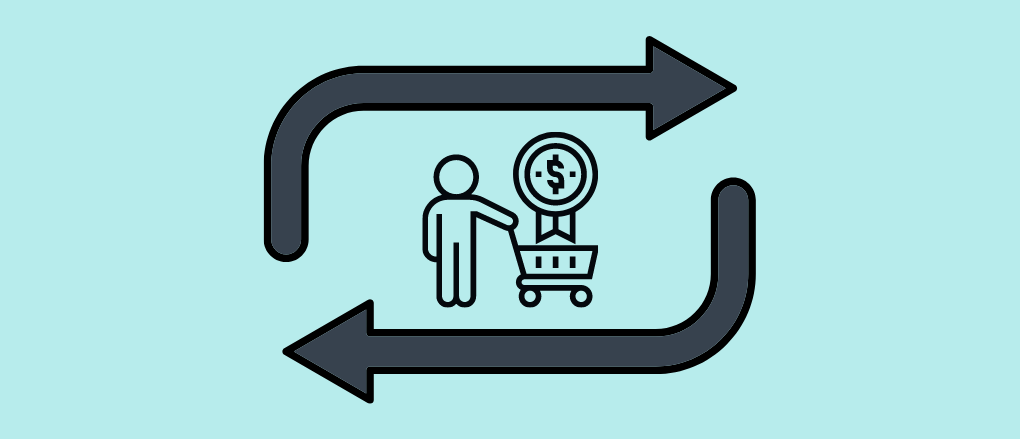What’s a Customer Facing Role? (& The Skills Needed for One)
When it comes to company roles, a customer-facing job position is a whole different ball game.
But what does “customer-facing” mean? And what skills does someone need to be good at it?
Whether you’re searching for a job or an employer looking to fill the role, you’re in the right place. In this post, we’ll cover all of that and more, so stay tuned.
What Does it Mean to be “Customer-Facing?”
Customer-facing roles have a few qualifications, but the biggest difference is that a customer-facing employee is one that directly deals with your customers on a regular basis.
Other qualifications include:
- Any Customer Support or Service-Related Tasks
- Engaging with Customer & Followers on Social Media
- Handling Customer Issues & Complaints
- Direct Sales
- And More…
Customer-facing roles are unique because they represent the face of their whole brand.
One bad experience with a customer support rep can stain the brand’s reputation indefinitely- Especially if a negative review gets written because of it.
At the same time, customer-facing roles allow people who enjoy problem-solving, communication, and talking to customers face-to-face to truly shine.
What Are Some Examples of Customer-Facing Roles?
Any job position that directly deals with customers regularly is a customer-facing role- With that being said, some of them are much more involved than others.
A cashier for a grocery store and a customer success representative are both customer-facing, but they both deal with customers in very different ways.
Here are some of the most common customer-facing roles:
- Customer Support Specialist
- Customer Service Representative
- Customer Experience Representative
- Customer Account Representative
- Call Center Agent
- Customer Care Representative
- Email Support Representative
- Sales Representative/Salesperson
- Social Media Manager
- Receptionist
- Retail Sales Associate
- Cashier
- And More
What Skills Does a Customer-Facing Employee Need?
Customer-facing is a completely different ballgame than the rest of a company’s roles. And as such, to be effective in a customer-facing position, it takes a unique set of skills.
Here are just some of the main strengths customer-facing employees need.
Problem-Solving
70% of unhappy customers whose problems are resolved are willing to shop at a business again.
As one of the main contact points for customers of your business, customer-facing employees will face a significant amount of customer problems and complaints.
To promptly deal with those issues and help customers find the solution they’re looking for, problem-solving skills are amongst the most critical ones to have in a customer-facing role.
Empathy
While it may commonly be seen as a character trait, empathy is just as much of a skill as any.
And for those who deal with customers regularly, it’s a skill that needs to be honed well.
Finding helpful solutions to problems for customers often involves seeing things from their perspective.
Whether that’s by refunding a purchase, offering a discount, or taking a dive to find the information they’re looking for- Empathy is a necessity to consistently help customers walk away 100% satisfied with their interaction.
Strong Communication
Since much of a customer-facing employee’s time will be spent directly speaking and dealing with customers, a strong set of communication skills is a non-negotiable.
The communications necessary for this kind of role include (but aren’t limited to), active listening, straight-talking, and emotional intelligence.
Patience
35% of customers report feeling angry when dealing with customer service.
And as someone who interacts with customers on a regular basis, customer-facing employees will need to develop enough patience to defuse and deescalate those situations.
Adaptability
While customer-facing roles often work off of scripts, real life doesn’t operate on a script of its own.
This means that anyone interacting with customers will need to be ready for when a situation goes “off of the rails” and adapt quickly.
Ability to Stay Positive
In the face of angry and irritated customers, the ability to stay positive in most situations is a great strength for those in customer-facing roles.
While one bad experience can permanently sway a customer away from a brand, the opposite is also true.
One positive and helpful customer support rep can earn your business a lifelong loyal follower.
Time Management
Almost 60% of customers report that long wait times are the most frustrating part of dealing with service.
As a customer support rep (or in any similar role), you’ll consistently be dealing with multiple customers at once.
To effectively delegate and manage your resources between each customer, excellent time management skills are a requirement if you plan on resolving each issue promptly.
4 Tips to Improve as a Customer-Facing Representative
Customer-facing skills aren’t things you’re born with or without, they’re all skills you and train and hone to improve.
That being said, they’re not the most straightforward of skills to learn.
So let’s talk about just how you can train them to improve your customer interactions.
1: Build Empathy
While it may seem like a trait rather than a skill, studies have found that empathy is capable of being strengthened with intention.
Here are a few strategies you can use to strengthen your empathy:
Read Novels
The APA has found that individuals who read fiction literature often have higher amounts of empathy. This is due to novels often forcing you to see from the perspectives of various characters.
Reading novels is a fun way to help yourself build the necessary empathy to improve your output in a customer-facing role.
Expose Yourself to Differing Opinions
Actively interacting with people and media from differing perspectives helps to build a wider range of empathy.
Another great way to hone your empathy is to practice talking and finding common ground with people who don’t share the same opinions as you.
2: Improve Your Listening Skills
The key to effective listening is active listening.
To train your listening skills, you’ll need to practice them.
Take the time to listen to short clips of podcasts without text or subtitles, then take the time to write down the information you’ve gathered from the clip afterward.
After that, listen to the clip again and see what pieces of info you’ve missed.
As you repeat this process, you’ll find that you collect more and more of the information each time.
It’s also important to take note of what you’re doing as you listen.
Keeping a distraction-free environment helps to keep your focus on who’s speaking rather than what’s currently around you.
3: Learn to Streamline Your Communication
“If you can’t explain it to a six-year-old, you don’t understand it yourself”
Einstein
Learning to simplify the way you communicate with others is one of the most productive things you can do to improve your customer support skills.
To improve your streamlined communication, practice breaking complex ideas into simple pieces.
Ask yourself, “If I had to explain this to a first-grader, how would I do it?”
Take the time to think through common processes in your business and how they work, so that you can communicate those ideas to customers when needed.
4: Train Your Calmness
Training your calmness can be one of the most difficult skills to develop.
When customers get frustrated and escalate the situation, it’s all too easy to let the negative attitude seep into your own.
To help prepare for those situations, start making a list of the most common phrases from angry or upset customers. Then, ask yourself, “What’s the best way to respond to this?”
Also, take the time to write down your own specific “triggers.”
Use those triggers as more resources to train your emotions to stay calm in the heat of the moment.
Common Weaknesses for Customer Support Reps
And lastly, let’s cover some of the biggest weaknesses for many customer-facing positions- specifically those in customer support roles.
Not Having the Answer
Customers come to support for a wide variety of reasons, and because of that, reps won’t always have the immediate answer.
Oftentimes, this leads to an unclear or incorrect answer- But that’s the incorrect response.
To effectively deal with challenging customer issues, customer support reps need to be comfortable telling customers that they don’t have an immediate answer, and need some time to get a proper response.
In cases like these, it’s vital to let the customer know when they should expect a response.
“That’s a great question! Unfortunately, I don’t have an immediate answer. Is it okay if I get back to you within X minutes on that?”
Failing to Understand Customer Issues
Without understanding what a dissatisfied customer wants, it’s nigh impossible to give them a proper solution.
To effectively solve customer problems, it’s crucial for customer support reps to actively listen, then review the issue step by step with each customer to know if they’ve understood the issue correctly.
Any customer will be magnitudes happier to repeat their questions once than to go through an hour of waiting just for an unresolved issue.
Slow Reply Times
We’ve all been there.
Waiting for what seems like an eternity just for a customer support agent to come back and immediately transfer us to another department.
To avoid subjecting anyone to an hour(s) long wait, customer-facing employees should hone their time management skills to a T, and avoid keeping any single customer on hold for extended periods.
The Wrap Up
Customer-facing roles make up the face of every company.
From the way a cashier greets you to how effectively your issue gets resolved when you contact customer support- Each and every interaction makes up a company’s reputation.
And that’s exactly why it’s so important to strengthen your customer-facing skills in the first place.
If you found this guide helpful, make sure to check out the other content on our blog.
And if you have any questions or think we missed something, leave a comment below.




